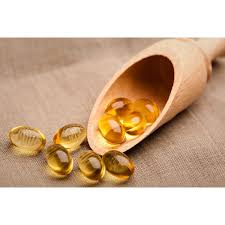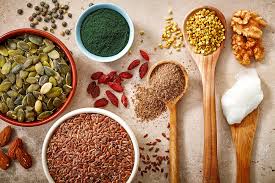Nutritional Principles for Prostatitis Patients
Prostate is the largest accessory gonad in male genitals. Its function is to produce prostatic fluid and participate in reproductive metabolism. Prostate is the "treasure land of geomancy" for men and the "troublesome" place for most men. Prostate disease is a common disease that can not be ignored by men.
Prostatitis is a common disease in young and middle-aged men, accounting for 25%-40% of adult male urological diseases. Males aged 55 and over all have different degrees of prostatic hypertrophy. Because of the slow course of the disease, the early symptoms are not obvious, which is not easy to attract attention. Benign prostatic hyperplasia (BPH) is the most common disease in elderly men and the most common benign tumor in men. Benign prostatic hyperplasia is often associated with a series of irritation symptoms and lower urinary tract symptoms, which has a negative impact on the quality of their life.

Nutrition Principles
1. Limit fat intake: Multinational scientists have proven that the more high-fat foods you eat, the higher the incidence of prostate cancer. High-fat foods are harmful to human body, so it is necessary to limit their intake. It is suggested that the daily fat intake should be reduced to less than 20% of the total calories, so as to reduce the incidence of prostate cancer.
2. Attention to Selenium and Zinc: Selenium and Zinc are two important trace minerals that are relatively deficient in the blood of patients with prostatic diseases. Selenium is an antioxidant that prevents cells from being oxidized and causing cancer growth. Zinc is another mineral that is abundantly concentrated in the prostate. Scientists believe that it regulates testosterone metabolism in the prostate. According to experiments, testosterone imbalance may cause the growth of prostate cancer. Therefore, it is very important for the normal operation of the male reproductive system.

3. Avoid spicy stimulating food: spicy stimulating food can aggravate the body's dampness and heat, make the prostate hyperemia and swelling, affect urination, so we should avoid pepper, ginger, curry, mustard, pepper and so on, when used as seasoning, it is appropriate to put less. In addition, alcohol also has a certain stimulating effect, making the prostate hyperemia and urination not conducive, so it is not appropriate to drink much.
4. Avoid raw and cold food: raw and cold food can act as cold stimulation, which can shrink the prostate and lead to unfavorable urine circulation. For example, some frozen drinks, cold food should not be eaten in autumn and winter.
5. Drug contraindications: Some antispasmodics, such as atropine, anisodamine, scopolamine, anisodine and probencine, etc. and doubleequal tricyclic antidepressants can relax the detrusor muscle of the bladder, cause dysuria and even urinary retention. Antiallergic drugs such as diphenhydramine, isopropylcholine, chlorpheniramine, ephedrine, epinephrine, morphine, methamphetamine and anxiodine have different side effects on urination. They should be used with caution in clinic.

Related Articles
- D-mannose for Chronic Prostatitis: Does It Work? 2019-10-31
- Three criteria of cure on prostatitis declare whether you get cured 2018-12-21
- Why Is Prostate Vulnerable to Diseases with Vitamin D Deficiency? 2019-09-25
- Chronic Nonbacterial Prostatitis - a Prostate Infection Which Can be Treated by Herbal Pill 2022-10-27
- Is It likely That Prostatitis Will Cause Leg Pain? 2019-10-07
